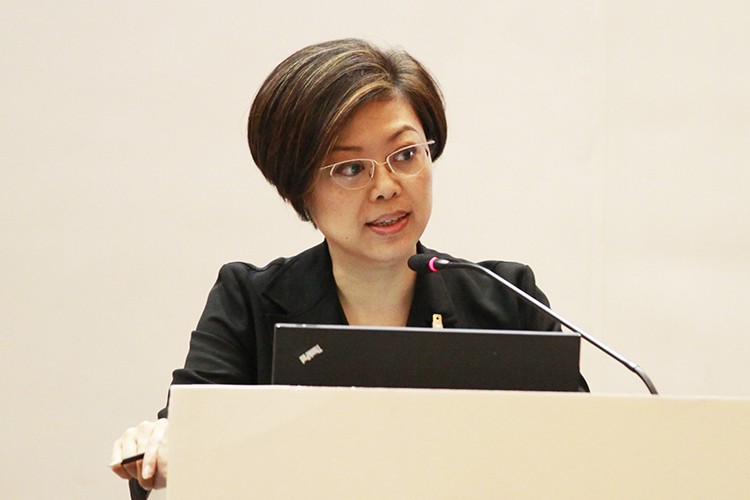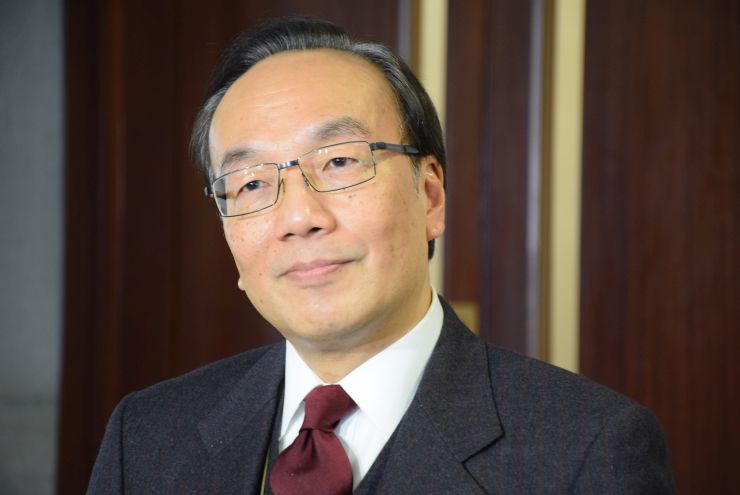The system of judicial review is being abused in Hong Kong, former Bar Association chair and retired Court of Final Appeal judge Henry Litton said at the Foreign Correspondents’ Club on Wednesday.
“Judicial review is not available for challenges to government policy,” Litton said: “That is a fundamental rule in the separation of powers. The court is concerned with law, not policy… [it] is the place for the vindication of legal rights [and] redress for wrongs done. It is not a debating hall or a classroom.”

Discussing the judicial review cases on the selection of Hong Kong’s chief executive, Litton said that acts of reporting, consulting and putting forward proposals “could not by any stretch of imagination be categorised as unlawful, abuse of power or anything else that could remotely have brought these acts within the purview of judicial review.”
However, the judge responsible for the review did not dismiss the application and went forward with proceedings, which Litton implied had been a waste of court resources.
Speaking on the judicial review of the government’s reform report, brought against the chief executive and the government of the HKSAR, Litton said that “the notion that the entire government of the HKSAR should be subject to review is totally absurd and is symptomatic of how far the system has been abused in recent times.”
On similar grounds, Litton also criticised the case lodged by Yvonne Leung Lai-kwok concerning the second round of public consultation on political reform, and the bringing in of the Chief Executive in that case.
Citing the Hong Kong-Zhuhai-Macau Bridge and its environmental impact assessment, Litton stated that judicial reviews could be highly costly for Hong Kong. As a result of the judicial review, he said, the project was delayed by two years and the cost incurred rose to US$1 billion.
‘Unsuccessful judicial review does not mean system is abused’
Yvonne Leung responded to Litton’s remarks by saying that she had never planned to “put judicial review onto her CV”, and that she did not take pride in suing Chief Executive Leung Chun-ying, Apple Daily reported.
“If the court could not respond to the public and make a ruling as to unconstitutional policies through judicial review,” Leung said, “then there would be no procedure for redress if the chief executive made policy errors.”

Winnie Tam, current chair of the Bar Association, said that not every unsuccessful case of judicial review represented an abuse of the system: in some cases, the applicant might have misunderstood the purposes of judicial review, or the court could have erred in its judgment.
Tam added that she understand judicial review could result in delays or an increase in cost but these are not just cause to oppose the system of judicial review. The solution is not to weaken the tool that keep government power in check, Tam said, but to ensure that the judiciary is not affected by political factors.
‘Important component of separation of powers’
Senior Counsel Alan Leong Kah-kit responded saying that judicial review is an important component of the separation of powers. If there were no judicial review, he said, administrative bodies would not have to be worried about being challenged and could act as they wish – and when that happens, the cost borne by the society might be even higher than that of dealing with judicial review.

Leong said that he was surprised by Litton’s comments because although the number of judicial review cases has been on the rise since Hong Kong’s handover, the court has the right to throw out cases which do not satisfy the arguability test. There have been many unsuccessful cases of judicial review, Leong added, and this shows that the court has fulfilled its role as gatekeeper.
The Chief Executive himself has long been an outspoken critic of the judicial review process. In November, Leung said that plans to build apartment units had been hindered because of judicial review, which he has also routinely blamed for delays in infrastructure construction projects.
